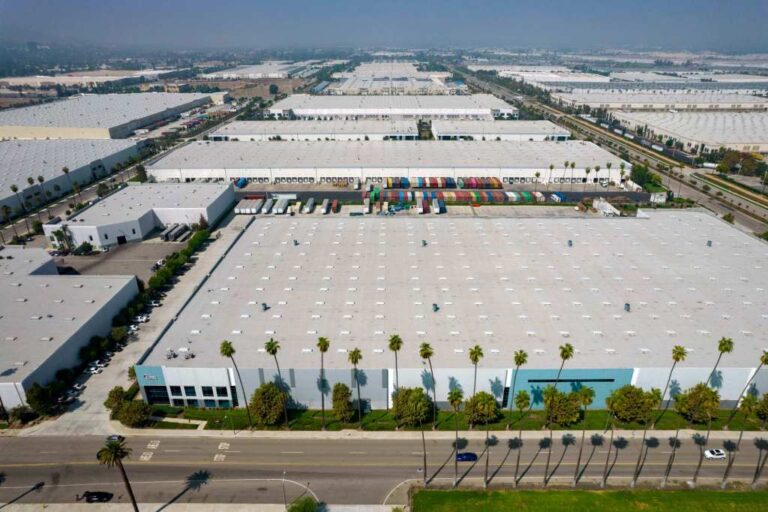An Inland Empire glut of underused warehouses is contributing to valuation pressures for Sun Life Financial Inc.’s US investment properties.
The Toronto-based insurer and asset manager said its US real estate holdings were worth $1.3 billion at the end of the first quarter, down 15% from a year earlier and 4.6% from the previous three months. After a strong performance last year, it was mark-to-market valuations for the firm’s US industrial properties that were the biggest negative factor in the first quarter, the executives said.
Values were down 6.7% from the previous three months. California’s Inland Empire, an area considered a key hub for big-box and e-commerce logistics, was the main source of this, said Randy Brown, Sun Life’s chief investment officer and head of insurance asset management.
“We had seen outsized gains there in prior quarters. This quarter, we had a cap-rate and yield decompression, which we expect, but also a drop in the achievable rents,” Brown said on a call with investors on Friday. “There had been very strong development completions and extensive growth in that specific area throughout the pandemic, which led to an oversupply bubble that’s putting downward pressure on rents.”
Prologis Inc., a major owner of warehouses in the US, lowered its 2024 earnings guidance as the landlord faces lower average occupancies. The leasing slowdown was most acute in Southern California and the Inland Empire, Chief Financial Officer Tim Arndt said on an earnings call in April.
While vacancy rates for industrial properties in the greater Los Angeles area have been on the rise, Brown said that Sun Life’s properties in the Inland Empire are fully occupied, with strong tenants in extended leases.
“Office continues to experience negative valuation changes again as the market seeks a floor,” he said. “But we’ve seen the pace of those drops slowing down.”
Brown has previously said Sun Life won’t be a forced seller of real estate assets, as most of its properties are mortgage-free and it’s a long-term holder. While valuation changes can affect the company’s reported earnings, the impact isn’t necessarily realized when they happen and in many cases never will be.
US office buildings remain a pain point as well — their values plunged 28% over the past year — but Sun Life executives say the pace of decline there is slowing.


